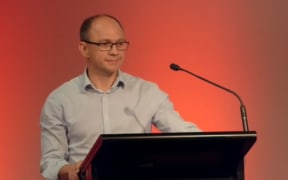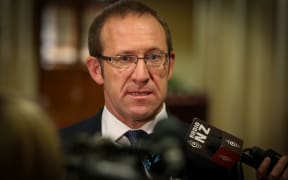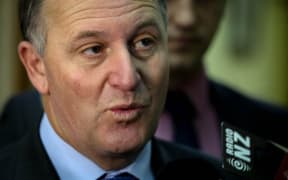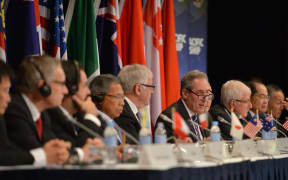Prime Minister John Key has conceded New Zealand will have to pay more for some medicines under the Trans-Pacific Partnership (TPP) but he says patients will not be disadvantaged.
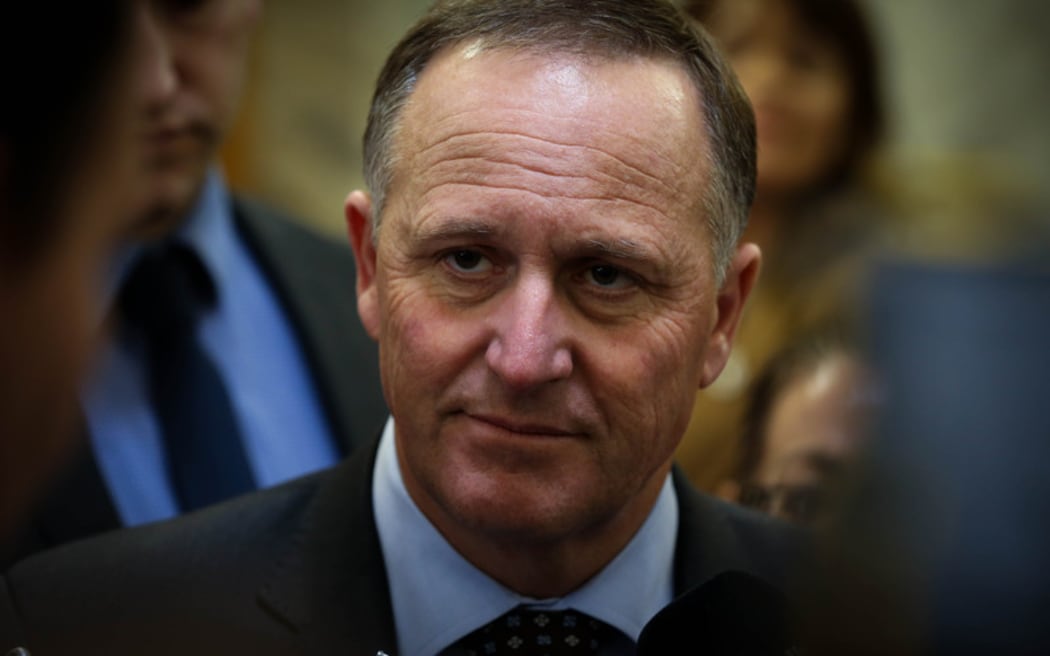
John Key has conceded the TPP may increase the costs of medicines. Photo: RNZ / Alexander Robertson
Mr Key said despite the probability that some medicines would cost more the deal was still in the country's best interests.
Trade ministers from the 12 countries negotiating the TPP are meeting in Hawaii this week trying to put the finishing touches on the deal.
Mr Key rejected criticism the deal would be bad for New Zealand, saying by opening up other markets this country's exporters would benefit.
But he said there was a high probability patents on medicines would be extended under the deal.
"That means the Government will have to pay for the original drug rather than the generic for a little bit longer.
"But for consumers that won't make any difference because, you know, on subsidised drugs you pay $5 for your prescription so the Government may incur slightly more costs there."
Mr Key rejected suggestions that if Pharmac was having to pay more for drugs it might delay bringing expensive drugs into the country.
"You've got to remember under the Pharmac model they always make sure that there are a variety of drugs and often not just one.
"I mean if you take, you know, drugs for a condition that's quite common they often have about three on the list. They don't just have one," Mr Key said.
But Green Party co-leader James Shaw said extending patents and making medicines more expensive would have an impact in New Zealand.
"It means that we may have to wait longer. It means that there may be some medicines that simply aren't available, that won't become available or if they do become available that they're available at the market prices which is eye-wateringly expensive," Mr Shaw said.
Labour leader Andrew Little said his party would not support the deal if it did make medicines more expensive.
"Their right to charge a premium, for their drugs - for there to be no competitors for a longer period of time.
"That is going to make medicinal drugs more expensive, for a longer period of time.
"It is going to add costs to Pharmac, it's going to add costs for the New Zealand taxpayer - that is unavoidable."
He said it would breach Labour's bottom line that the ability of Pharmac to buy drugs should not be undermined, and on that basis the party could not support the trade deal.
Ian Powell, executive director of senior doctors' union the Association of Salaried Medical Specialists, said any cost increases to drugs under the proposed TPP would be passed on to consumers.
Mr Powell said Mr Key's admission was long overdue and confirmed drug prices would rise.
Mr Key had rejected suggestions that cost increases would be passed onto consumers but Mr Powell said the reality was it would impose extra costs on a cash-strapped health system that was struggling to make ends meet.
The association wanted the government to conduct a formal, independent assessment of the impact on health of the agreement.
